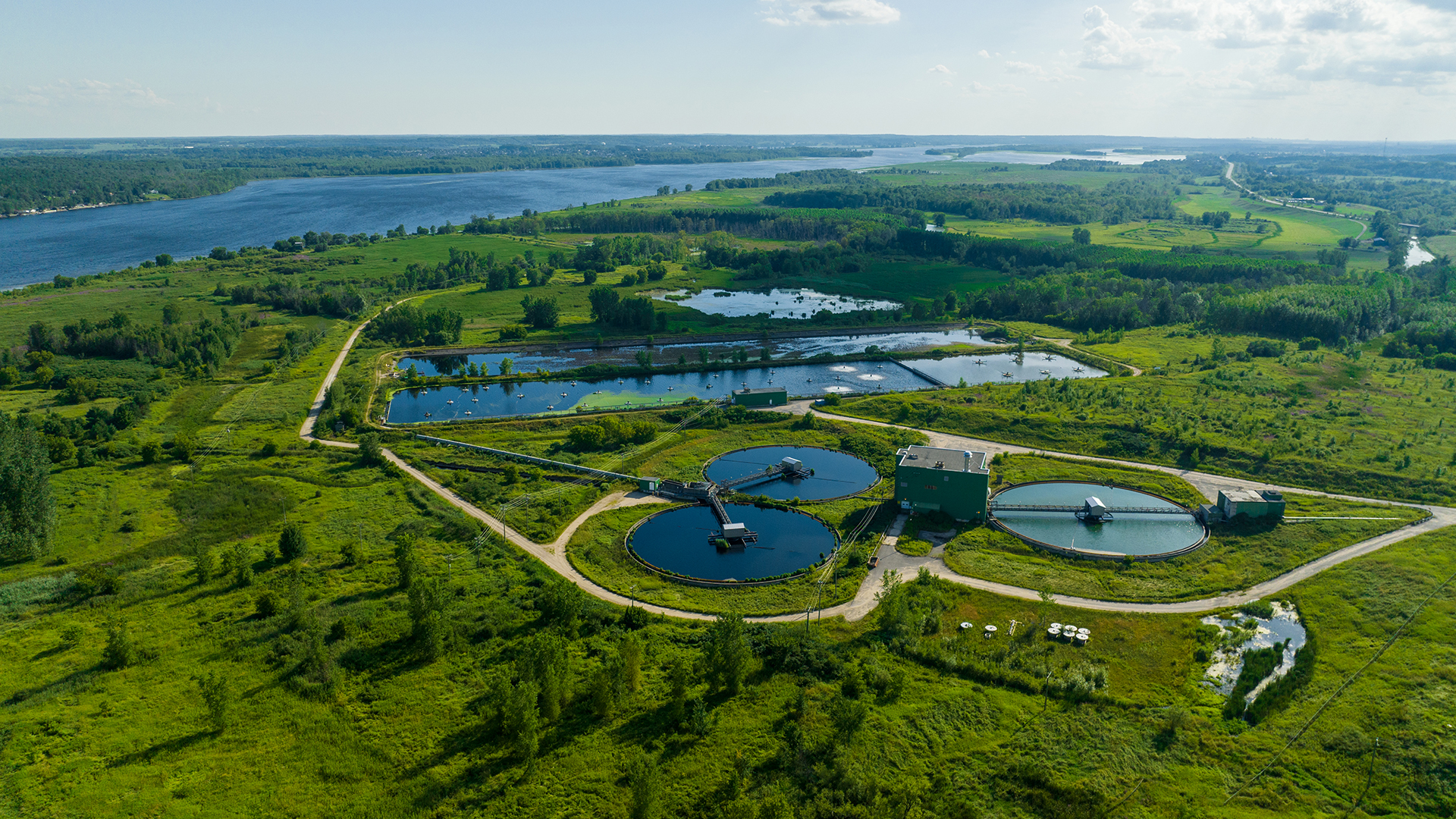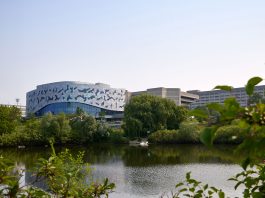Toronto Metropolitan University researchers are advancing innovative solutions that facilitate a robust, sustainable, and inclusive future where everyone can engage and thrive.
Through local and global partnerships and collaborations, Toronto Metropolitan University (TMU) drives forward new ideas to accelerate a healthy, sustainable, and inclusive future where everyone can participate, learn, and succeed. From global migration to equity in health care to responsible digital technology, research at TMU reaches across borders and disciplines to find innovative and collaborative solutions to the world’s most complex challenges.
This research advances robust cybersecurity, prepares for the future of work, and develops sustainable policy and infrastructure to not only address society’s current needs but also anticipate the needs of tomorrow.
Professor Steven N Liss, Vice-President, Research and Innovation at TMU said: “The world is experiencing an extraordinary era of change. Social, economic, environmental, and digital transformations are occurring more rapidly than ever before, bringing forth challenges that demand bold and creative solutions. These transformations also present unique opportunities to change the way our world works, shaping a brighter future.”
TMU seeks new opportunities to scale and apply our research and innovations in communities worldwide, enter new partnerships, and tackle major global challenges together.
Professor Liss said: “Our world-class researchers exemplify an exceptional ability to collaborate with scholars, governments, and industry organisations beyond our community to advance knowledge, improve lives, and increase economic competitiveness. Through our collaborations with international partners, we have embarked on trailblazing research that brings together diverse perspectives to strengthen our endeavours and accomplish positive, real-world impact.”
Interdisciplinary migration research
Immigration is a cornerstone of economic growth and labour markets worldwide, including Canada. For more than three decades, TMU has been at the forefront of immigration and migration research and education. This leadership paved the way for the university’s ‘Migrant Integration in the Mid-21st Century: Bridging Divides’ research programme, engaging more than 35 research leaders, 100 scholars, and 200 organisations from across Canada and the world.
Led by the international scholar and Canada Excellence Research Chair in Migration and Integration, Professor Anna Triandafyllidou, the programme’s collaborative, interdisciplinary, and transformational research explores global migration and how it intersects with technology adoption, community health, infrastructure, and more. This $98.6m investment by the Government of Canada’s Canada First Research Excellence Fund enables critical insights to improve outcomes for migrants and produce practical solutions that support thriving, equitable, and resilient communities.
Professor Triandafyllidou noted: “The world is experiencing rapid digital change affecting all aspects of how we live, work, and travel, as well as how we participate in society. Bridging Divides research is focused on how advanced digital technologies can be applied to improve immigrants’ integration and make our societies richer, more creative, and more resilient.”
One of the programme’s key research areas identifies the practices that enable migrants to engage in work and explores how they can be scaled up to fit the needs of migrants in Canada and elsewhere. Researchers are examining how the strategic deployment of digital technology can improve immigrants’ economic integration in all forms of work.
For instance, many newly arrived migrants enter the workforce through jobs in the digital platform economy, from gig-based apps for ride services and freelance labour to apps connecting healthcare workers with employers who have available shifts.
Professor Triandafyllidou and her collaborators are examining how migrants use these platforms to create networks and develop employment experiences. They’re also investigating technology’s role in unemployment and underemployment, combating employer bias, training and retraining newcomers, and facilitating foreign credential recognition.
Innovating for health equity
TMU has significantly accelerated its health research, with a particular focus on addressing critical community health issues and filling gaps, such as access and equity.
Professor Karen Soldatic, the Canada Excellence Research Chair in Health Equity and Community Wellbeing, is internationally recognised in her field. She works with a global network of disability, social, and healthcare scholars, institutions, service providers, and civil society organisations on research that aims to provide equitable and accessible community-engaged models of sustainable social, economic, cultural, and emotional well-being.
A vision of person-centred care is at the heart of TMU’s new community-first, intentionally inclusive School of Medicine enterprise. Welcoming its first class in 2025, the medical school is developing critical relationships with health partners and other academic institutions. Agreements with collaborators, such as the Indigenous Primary Health Care Council, highlight TMU’s dedication to advancing equity in medical education and health care.
The medical school is an extension of the university’s strength in health research. It will intersect with top-tier researchers and their work in fields such as biomedical science, psychology, and nursing. Daphne Cockwell School of Nursing Professor Mandana Vahabi is increasing cancer screening accessibility internationally, with a special focus on cervical cancer – one of the leading causes of death among women globally, but preventable with regular testing.
Leading a five-year research project in India, she and researchers from Canada and the Tata Memorial Centre in Mumbai are promoting the uptake of screening among low-income urban and rural women from across eight states. They are using a culturally appropriate arts-based sexual health education approach and HPV self-sampling tests to reach those who are under-screened or have never been tested.
Sustainability research and infrastructure
The environment we live in greatly impacts the health of people, cities, and communities. TMU is a leader in sustainability research and has a robust water research community. A multidisciplinary consortium of researchers and international partners works together to solve complex urban water challenges, from policy to the natural sciences.
A first-of-its-kind research project led by Professor Elsayed Elbeshbishy is set to build greener wastewater systems. Wastewater systems are one of the main contributors to greenhouse gas emissions (GHGs) worldwide, and TMU is at the forefront of solution-based research in this area. Professor Elbeshbishy is working with 16 partners, including municipal governments and industry organisations, on multi-level GHG detection research to measure methane and nitrous oxide using computer simulations, ground and drone sensors, and aircraft and satellite imaging. The comprehensive data, collection will allow researchers to better understand the uncertainties in measurement methods.
Professor Elbeshbishy said: “Governments around the world want to reduce their GHG emissions from different sectors, including wastewater treatment plants. If we’re able to understand why there is a difference in measuring GHGs with different methods, we can minimise the difference, reduce uncertainty in the data and have a measurement tool that we can rely on.”
This project entails numerous additional components that contribute to a better understanding of GHGs, including developing mathematical models to predict GHG emissions from sewer systems and wastewater treatment plants, assessing GHG emission calculators, and creating educational videos and social media content.
Decarbonising communities
Reducing GHGs is critical as the world seeks to lessen the impacts of climate change. TMU researchers are leading the way in developing the innovations and knowledge needed to decarbonise communities.
TMU’s Centre for Urban Energy focuses on developing novel, sustainable, and accessible energy solutions that integrate local, small-scale, and renewable power sources into electricity grids for more adaptable energy infrastructure. Professor Bala Venkatesh is the centre’s founding academic director and an internationally recognised clean energy expert.

Professor Venkatesh works closely with researchers from Europe, the US, South America, and Asia to explore topics that range from policy and regulation to energy storage to smart micropower grids. He has cultivated local and international collaborations, including an ongoing partnership with Tata Power Delhi Distribution Limited, to develop on-the-ground clean energy in Delhi, the world’s second-largest city.
TMU’s Smart Campus Integration and Testing Hub, led by Professor Jenn McArthur, is set to be the world’s first fully digitally enabled building. Digital twins – virtual models of a physical object or system constantly updated with data to reflect physical reality – can be used to optimise buildings and cities around the world to be more sustainable, reducing carbon emissions while ensuring occupants’ comfort and safety.
Professor McArthur is at the leading edge of this field, creating cognitive digital twins that integrate data streams such as sensors into up-to-date digital versions of buildings capable of learning, predicting, and optimising building performance.
To date, Professor McArthur and her team have developed 18 unique pieces of licensable intellectual property for smart campus digital twins. Early results from twinned TMU facilities are promising, showing cost, energy, and other efficiencies.
Off-campus, her cognitive digital twin work has also demonstrated positive changes in different settings. Of one example, McArthur said: “We’ve done work with some optimisation models in multi-unit residential buildings that have shown 25-40% energy savings without any change to equipment, just based on control optimisation.”
Professor McArthur has most recently embarked on a collaboration with European colleagues exploring various areas, including developing city-scale energy models to plan and optimise for decarbonisation.
Developing responsible technology sectors
Technology has brought the world closer together, eliminating barriers in distance, time, and culture. As technology advances, researchers at TMU work to ensure that our digital industries are ethical, equitable, and secure.
Professor Ebrahim Bagheri’s research focuses on the development of artificial intelligence methods and tools that will benefit both society and the global economy. He is the director of Responsible Development of Artifical Intelligence (AI), a multi-sector, multi-institutional, and collaborative training programme. This programme and his research ensure that the next generation of AI talent is aware of and ready to engage with the ethical, legal, and policy concerns involved in using this technology.
Bias and fairness in AI, consumer privacy, and AI trustworthiness are at the core of his research. He and his team address challenges, such as the historical biases encoded in large search engines, to avoid the spread of such biases and stereotypes at scale. This focus is particularly important since search engines process more than eight billion queries per day, shaping the beliefs and decisions of many individuals.
Professor Bagheri and his team have developed various state-of-the-art approaches for quantifying, measuring, and reducing biases in search systems, including bias-aware methods that anticipate and compensate for these issues. They have had successful results, though Professor Bagheri notes that dealing with bias is a multifaceted problem that requires solutions beyond technological development.
With technological advancement comes the growing need for robust cybersecurity. As part of TMU’s commitment to global cyber resilience and fostering innovation, collaboration and excellence in this sector, the university established the Rogers Cybersecurity Catalyst (the Catalyst).
From research fellowships to training and certification programmes to support small and medium businesses with practical cybersecurity resources, the Catalyst empowers individuals and organisations to take on the challenges of cybersecurity to support healthy democracies and thriving societies. More than 7,000 people and 500 businesses across Canada and around the world have benefitted from the Catalyst’s groundbreaking programmes since its inception in 2018.
A new partnership with BlackBerry Limited will bring TMU’s world-class cybersecurity leadership programme to Malaysia. Through this international partnership, TMU will help bolster cybersecurity capacity in the Indo-Pacific region. Participants in the programme will gain access to career mentorship from leading cyber experts and training across skill sets, including regulatory compliance and cybersecurity ethics.
Global impacts
TMU’s innovators create positive global impacts with their novel approaches to the world’s most critical issues, from climate change to health care to cybersecurity. At TMU, we believe cooperation, collaboration, and diverse perspectives are crucial to finding innovative solutions.
We are looking to partner with dynamic collaborators to address the issues facing humanity today and create a more sustainable, equitable, and inclusive future for tomorrow. Novel ideas are needed as we prepare vital sectors to adapt to our changing world.
Research referenced in this article is supported, in part, by funding from: the Canadian Institutes of Health Research (CIHR), the Natural Sciences and Engineering Research Council of Canada (NSERC), the Social Sciences and Humanities Research Council (SSHRC), and the Canada Foundation for Innovation (CFI).
Please note, this article will also appear in the 18th edition of our quarterly publication.





